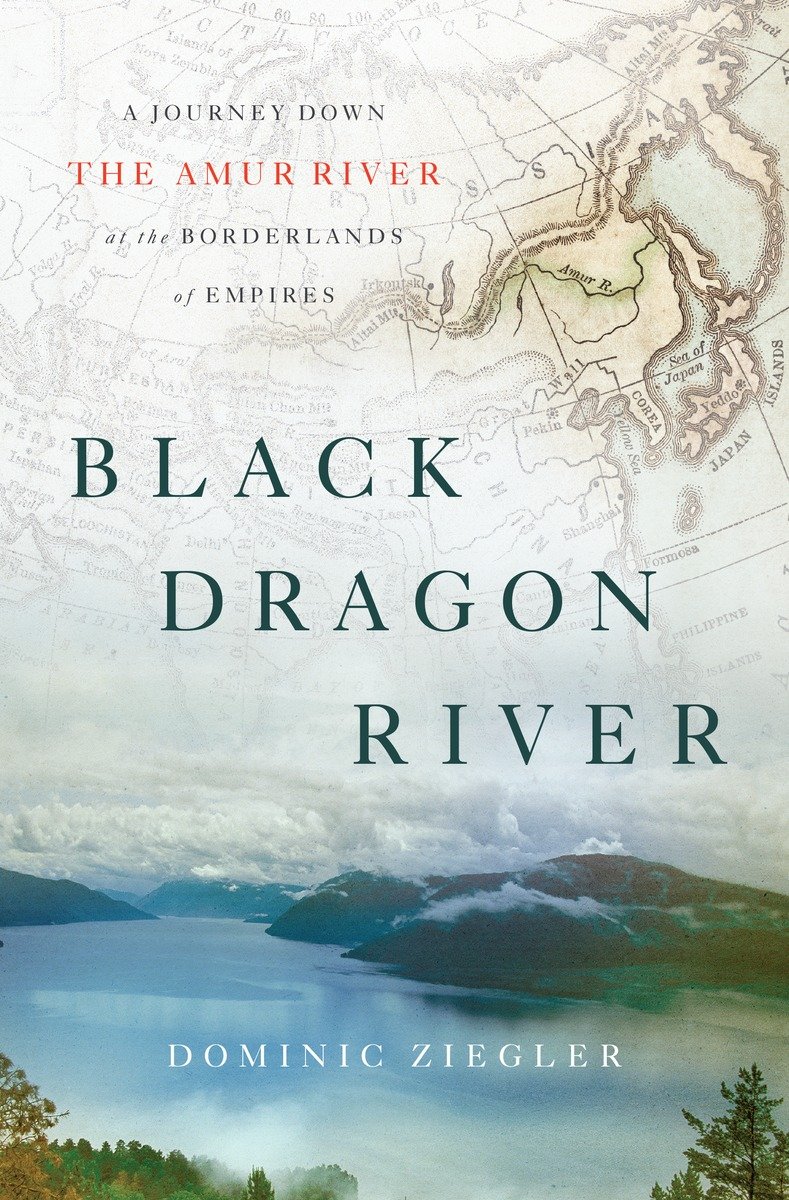
Black Dragon River
A Journey Down the Amur River Between Russia and China
- اطلاعات
- نقد و بررسی
- دیدگاه کاربران
نقد و بررسی

September 28, 2015
One of Asia’s great rivers delineates one of the world’s most colorful backwaters: Russia’s decrepit far-eastern provinces by the Chinese border. In this absorbing travelogue and history, Economist editor Ziegler ranges along the 2,826-mile Amur river from its Mongolian headwaters to its Pacific mouth on what proves to be a grand adventure. He rides horseback through Genghis Khan’s hunting grounds; journeys by train to the moribund cities on the river’s banks, poking around in their post-industrial ruins and still-thriving prisons; and trusts his life to Russian drivers. Along the way he fills in the historical backdrop of Russia’s love-hate relationship with the East. It’s an entertaining and often appalling saga, featuring greedy fur-traders, rough-hewn Cossacks, stolid peasants, and idealistic Decembrist aristocrats in exile. Ziegler lists countless atrocities committed against the region’s native inhabitants by colonizers and visits as many dusty museums paying vainglorious homage to those colonizers. Ziegler happily loses himself in the twisting tributaries of the river and its lore and weaves in gorgeous evocations of the landscape and piquant reportage on the odd and vibrant characters who people it. This is a fascinating portrait of the Amur and its enduring appeal as a symbol of Russia’s tarnished present.

September 15, 2015
A journalist's account of his travels along the Amur, a spectacular but largely uncelebrated river on the border between Russia and China. The Amur is the ninth largest river in the world. Yet for Economist Asia editor Ziegler, it remained "the longest river [he] had never heard of." As he was to learn, part of the river's mystery stemmed from the numerous name changes it had undergone over time. The Manchus once called it Sahaliyan Ula, or the Black River, while modern Russians call it the Amure, a name they derived from an old Daurian word (Amur) that meant "good peace." In this book, Ziegler chronicles his travels along the length of the Amur from its Mongolian source, the Onon River, to its endpoint 2,826 miles west in the Strait of Tartary. His journey, which he made by horse, Jeep, and train, took him through difficult yet unforgettable landscapes and brought him into contact with a host of intriguing individuals. However, his narrative is far more concerned with setting forth the complex history of both the river and the two nations it separates than with his own impressions of places and people. Ziegler begins his historical account with the story of Genghis Khan, who learned to fish in the Onon. His violence and aggression not only led to the creation of the Mongolian Empire, but also permanently marked that region afterward. More than seven centuries later, Russian czars obsessed with the idea that Russian greatness depended on expanding into China fought and killed their way east while focusing on the Amur as their path to a strategic port in the Pacific. Ziegler is exceptionally knowledgeable about the Amur region and its relationship to the current tensions that define the China-Russia relationship, but more often than not, the historical and political information he offers overwhelms the travel narrative. Rich in history but short on personal reflection, this book is more for Asian history buffs than fans of travel literature.
COPYRIGHT(2015) Kirkus Reviews, ALL RIGHTS RESERVED.

October 15, 2015
Ziegler, Asia editor for the Economist, embarks on an exploration of the Amur River, its history, and how it has shaped relations between Russia and China. He weaves the colorful history of the region into his travel narrative along the Amur, the world's ninth-longest river and only Siberian river that runs east into the Pacific. The author's encounters (including a particularly lively episode with an ex-con and prison in Nerchinsk) pepper the equally engaging historical accounts that include characters from Genghis Khan to Joseph Stalin. Ziegler examines an area that is particularly fascinating because of its location between the empires of Russia and China and its development and history being shaped by tsars, Soviets, and the Ming and Qing dynasties, to name but a few. In addition to the maps and index, there is a glossary and an informative bibliography for those spurred to read more about the region. VERDICT Readers curious about the history of Sino-Russian relations and Russia's Eastward expansion will find this account of particular interest.--Louise Feldmann, Colorado State Univ. Lib., Fort Collins
Copyright 2015 Library Journal, LLC Used with permission.

September 15, 2015
Few Westerners have heard of the Amur River, known to Chinese as the Black Dragon River. Most have trouble locating it on the map, but its watercourse has played a critical role in both ancient and modern worlds. From its Mongolian shores, Genghis Khan rode out to challenge and conquer swaths of the Eurasian landmass. The Amur played a critical role in Russia's eastward expansion into its Siberian territories. Much as the Rio Grande delimits Mexico from the U.S., the Amur today approximates the border between Russia and China, with similar tensions. Traveling via horse, jeep, and the Trans-Siberian Railway, Ziegler follows the Amur's course, from its Mongolian sources to its North Pacific mouth at the Strait of Tartary. Inhabitants of Russian river ports Ziegler visits reflect frontier grit, along with concern for their country's future and unease with their powerful neighbor to the south. Armchair travelers and students of both contemporary Russia and China will find perceptive and sobering insights here.(Reprinted with permission of Booklist, copyright 2015, American Library Association.)




دیدگاه کاربران